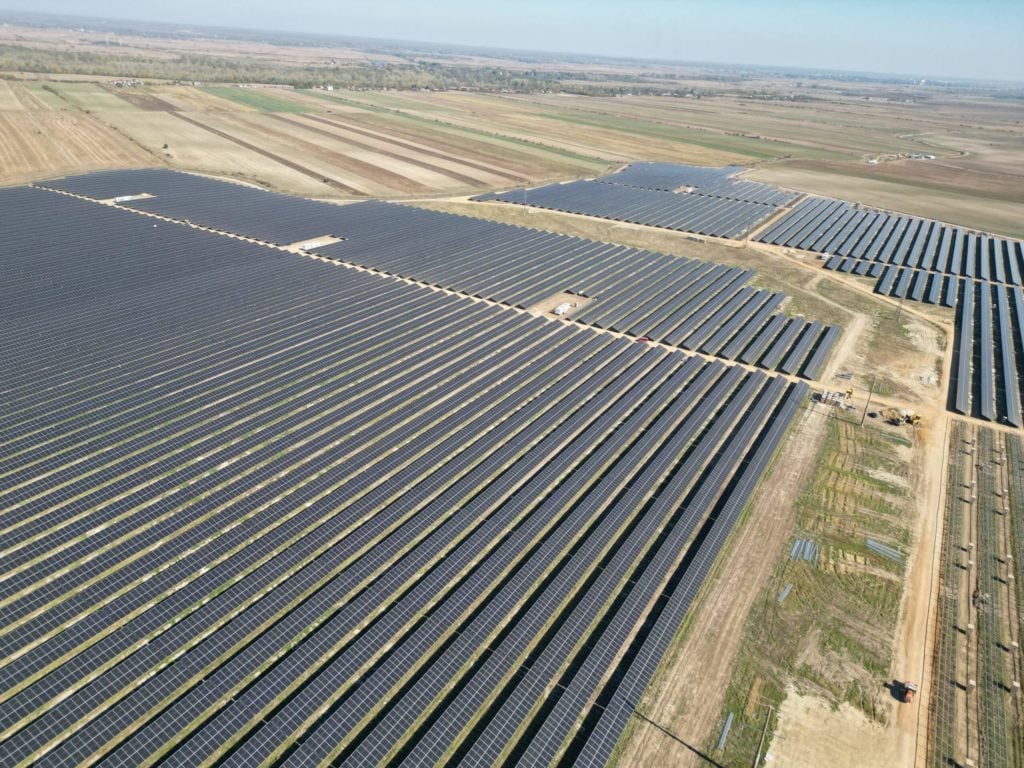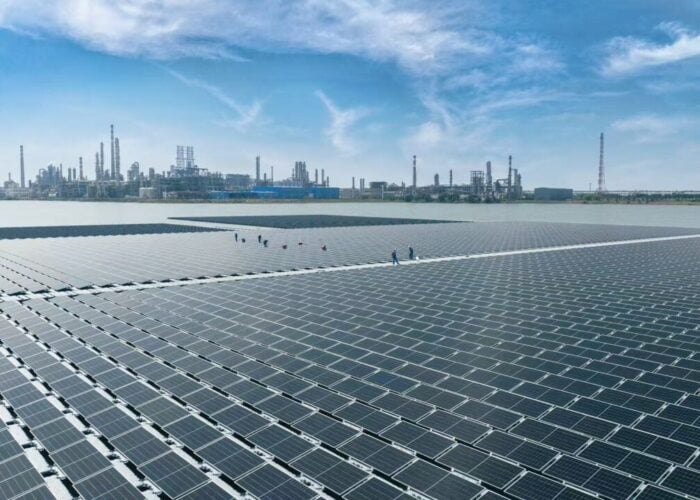
The European Commission (EC) has launched two investigations into two Chinese consortia over their bids for involvement in a Romanian solar project, suspecting them of violating the EU’s Foreign Subsidies Regulation (FSR).
The two consortia, one of which consists of the ENEVO Group and a German subsidy of module manufacturer LONGi, and the other of which consists of Shanghai Electric and a UK subsidiary, made bids for the design, construction and operation of a PV park in Romania.
Unlock unlimited access for 12 whole months of distinctive global analysis
Photovoltaics International is now included.
- Regular insight and analysis of the industry’s biggest developments
- In-depth interviews with the industry’s leading figures
- Unlimited digital access to the PV Tech Power journal catalogue
- Unlimited digital access to the Photovoltaics International journal catalogue
- Access to more than 1,000 technical papers
- Discounts on Solar Media’s portfolio of events, in-person and virtual
LONGi and Shanghai Electric are owned by the Chinese government, and the EU’s FSR is designed to prevent undue influence from non-EU governments in the single market, prompting the investigation into their involvement in the public bidding process. The consortia were informed of the decision today, and the EC now has 110 working days to complete its investigation, a timeframe that would require the EC to make its decision by early September.
Societatea Parc Fotovoltaics Ronvinari Est S.A., a Romanian contracting authority, held the tender for the project, which has been partially funded by the EU Modernisation Fund, a €57 billion (US$48.9 billion) initiative to support energy generation in what the EC calls “13 lower-income” member states, including Romania.
“The two new in-depth investigations on foreign subsidies in the solar panel sector aim to preserve Europe’s economic security and competitiveness by ensuring that companies in our single market are truly competitive and play fair,” said Thierry Breton, European commissioner for the internal market.
Chinese involvement in European solar
Under the FSR, which have been in place since July 2023, companies must disclose financial contributions made by non-EU governments made towards joint ventures with a turnover of more than €500 million (US$428.6 million), or the foreign financial contribution is more than €50 million (US$42.9 million).
Companies must also notify the EC of foreign involvement in public procurement processes, such as the permitting for a new solar project, where the estimated contract value is at least €250 million (US$214.3 million) and the foreign financial contribution is at least €4 million (US$3.43 million) per non-EU country involved in the deal.
While the EC did not specify the amount of money the consortia are thought to have invested in the project, it noted there are “sufficient indications” that both have invested enough to “distort the internal market”.
Much has been made of the relationship between the Chinese and European solar sectors in recent years, with 91% of all PV import expenditure in Europe being spent on imported Chinese products, according to NexWafe CEO Davor Sutija.
This over-reliance has proven challenging for the manufacturing sector in particular, with Johan Lindahl of the European Solar Manufacturing Council (ESMC) telling PV Tech Premium earlier this year that an oversupply of cheap Chinese-made modules in the European solar sector has created a “dire situation” for European manufacturers, casting doubts over the industry’s long-term health.
However, there is a less clear link between Chinese investments and Romania in particular, with Ramona Volciuc-Ionescu, a partner at law firm Volciuc-Ionescu, telling PV Tech today that: “the Chinese do not have a direct strong presence in the Romanian solar sector, as far as I am aware.”
“Chinese companies do sell most of equipment for the solar sector in Romania, but, as far as I am aware, there are not many actual solar projects controlled by Chinese companies or manufacturing plants in Romania,” Volciuc-Ionescu added.
The ESMC, meanwhile, called the investigation an “interesting step” for the European solar sector, and drew attention to the fact that, since the adoption of the FSR, and the hundreds of applications made for renewable energy under its jurisdiction, the first two applications to be approved are in the solar sector.
“The commission will evaluate whether these Chinese economic operators received an unfair advantage in securing public contracts in the EU,” explained the ESMC on LinkedIn. “Overall, it’s commendable that the commission is utilising these existing instruments. Naturally, the outcomes of these investigations will be the significant factor, considering they represent the first cases of applying FSR in the solar sector.”







